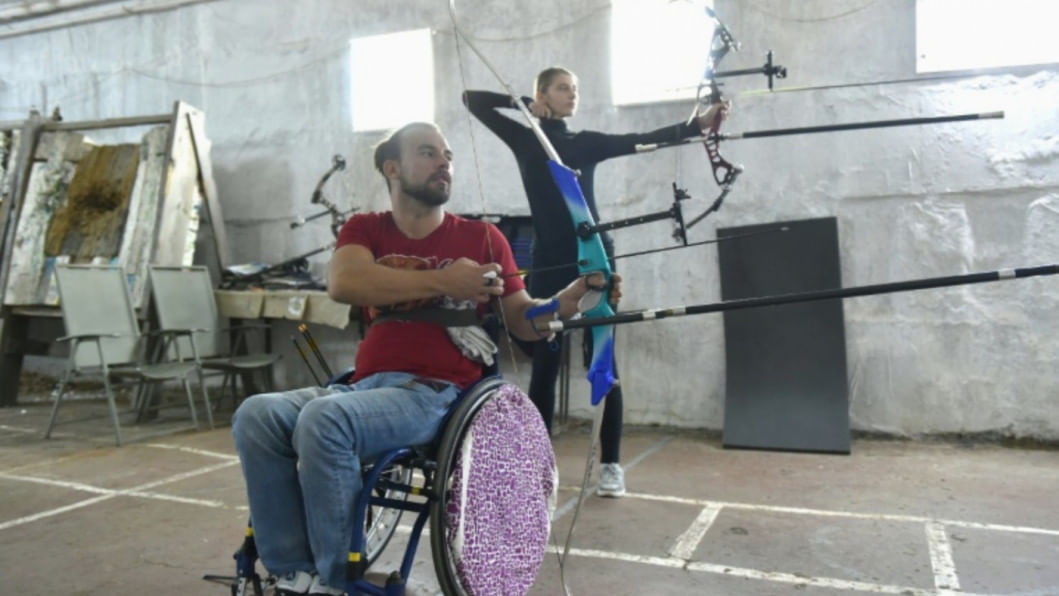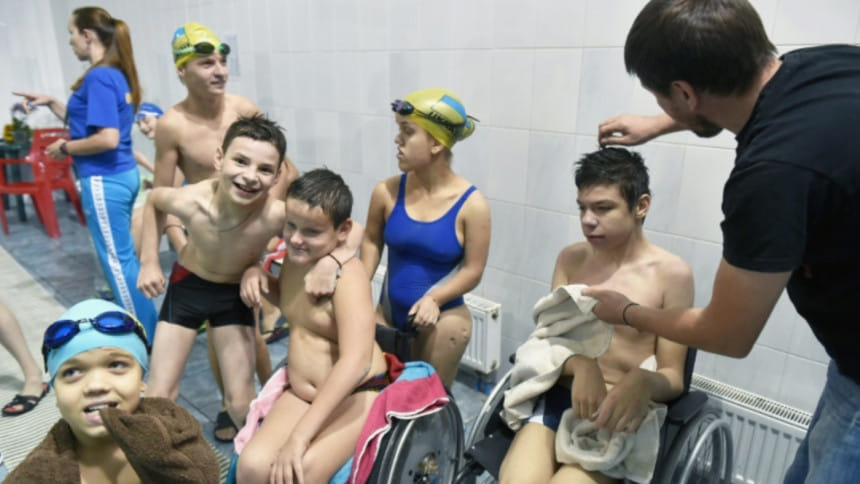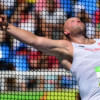Heroes in Rio, Ukraine's disabled struggle at home

A group of children stand by a swimming pool in Kiev clutching their goggles and dreaming of emulating the heroes they just watched scoop medals at the Paralympic Games in Rio.
Ukraine's team finished in a surprising third place in Brazil ahead of giants like the United States and Germany -- a stunning result for the ex-Soviet nation where disabled people often feel forgotten.
"What is your biggest dream?", coach Raisa Lagutenko demands of the children, who have conditions ranging from cerebral palsy to stunted growth.
"To become a Paralympic medallist", they shout back.
Lagutenko has been training disabled kids for over a decade and she insists the dire situation they once faced in Ukraine is improving.
"Ten years ago, this pool was the only one available for people with special needs," said Lagutenko, who had three of her prodigies competing in Rio.
"The situation is getting better -- new sports clubs are being built and the Paralympics were on TV, which makes society more perceptive to people with disabilities."
'Shame'
But despite some progress and the glow of Paralympic glory, most agree that Ukraine still has a long way to go.
Basics from access ramps to equal opportunities are frequently missing as the country still struggles to make progress despite its recent shift towards the West.
"Let's face it: it is easier for Ukrainian Paralympians to get a gold medal than to get to the store, or even a cinema in Kiev," Ivanna Klympush-Tsintsadze, Deputy Prime Minister on European and Euro-Atlantic Integration, lamented.
For some, the problems can be blamed on the legacy of the Soviet period when the disabled were often consigned to grim state-run institutions or forced to live in far-flung towns.
During Moscow's hosting of the Summer Olympic Games in 1980, people with disabilities were cleared from the streets to keep them out of view.
"It is a shame that so far, unfortunately, this separates us from European societies", Klympush-Tsintsadze wrote on Facebook.
Dmytro Shchebetyuk, 26, an archer on the Paralympics reserve team and co-founder of "Dostupno UA", a project monitoring accessibility for people with disabilities, agrees that he finds it hard to come back to Ukraine after travelling abroad.
He complains that many countries make life normal for the disabled, providing facilities such as sidewalks and underground passageways with ramps as standard, and that returning home after time away was "something one has to get used to again".
Sports "is practically the only occupation where you can realise yourself and truly feel like you are living a fulfilling life", he added.
'How can I go on living?'
When Andriy Shcherbatskiy, 25, was left in a wheelchair after breaking his neck six years ago he wondered how he could ever cope.
"I thought, how can I go on living?", he told AFP.
His hometown of Vinnytsya, a west-central city with a population of nearly 400,000, lacked the basic infrastructure to help disabled people get around and daily existence seemed a daunting challenge.
But authorities in the city -- repeatedly recognised as the most livable in Ukraine -- have led the way in making their streets more disabled-friendly and started installing facilities that have long been taken for granted in the West.
"After some time, a year later, accessible public transport started appearing one by one," Andriy said.
Now when Shcherbatskiy wants to get to the city centre for his table tennis practice the bus driver is now prepared to help him on board.
War wounded
Vinnitsya, however, remains an anomaly in Ukraine and most cities are yet to change.
But the issue of disabled rights looks set to become even more pressing for the country as a conflict that has killed 9,640 people and injured nearly 22,500 more drags on in the east of the country.
Last year "Pidmoga.info", a site that helps soldiers who suffered from the 29-month pro-Russian separatist war, invited famous Ukrainians to spend a day in a wheelchair and talk about their experiences.
"We now have a very difficult situation -- a lot of boys and girls will return from the war, and they will need to be integrated into society", singer and writer Irena Carpa told journalists after experiencing life through the eyes of a disabled person.
"If this does not happen, we will face a large-scale disaster", Irena warned.


 For all latest news, follow The Daily Star's Google News channel.
For all latest news, follow The Daily Star's Google News channel. 










Comments